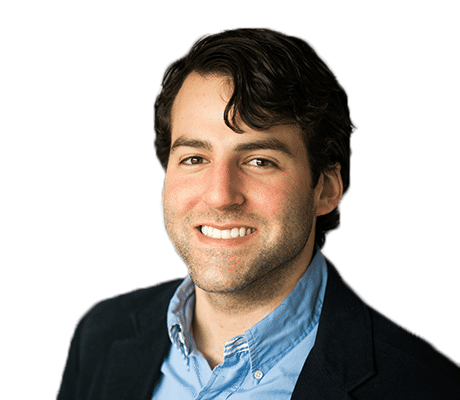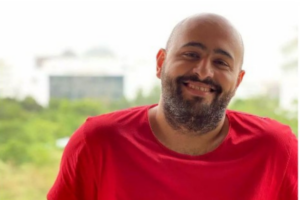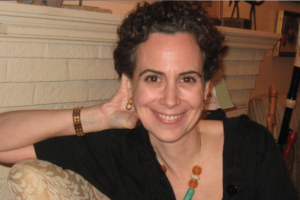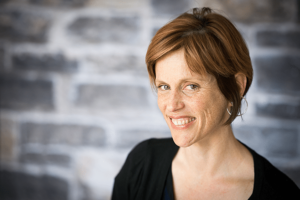
BGSP is unique among both psychoanalytic training institutes and graduate schools in offering the Doctor of Psychoanalysis degree (PsyaD). This post-master’s program combines full training to become a psychoanalyst with academic and research studies leading to the doctorate.
Tailored to take into account your prior education and training, the program fosters a high level of emotional attunement, attainable only through the combination of seminars, self-examination in the training analysis, and intensive clinical supervision — all hallmarks of our integrative approach to learning.
Program Objectives
The PsyaD program helps candidates understand how people develop their emotional lives, and teaches them to intervene in the intrapsychic life of clients.
The doctoral candidate:
- Explores the full range of character structures and psychopathology, integrating academic study with clinical work to understand patients’ repetitions, defenses, resistances, and symbolic communications
- Learns to utilize their emotional responses to understand and work with patients
- Learns to integrate theory, empirical research, and clinical observations culminating in the doctoral dissertation
“Since completing the doctoral program, I have been very busy working with children, adolescents, families, and adults at an outpatient psychotherapy practice, and as a psychoanalyst in private practice. Even after graduating from the doctor of psychoanalysis program, I have been continuing my journey aimed at furthering my knowledge and understanding about the deepest mysteries of the human condition.”
Michael Birnkrant, PsyaD, MA

Course of Study
Degree Requirements
Students in the Doctor of Psychoanalysis degree program fulfill the following requirements to graduate:
- A minimum of 69 credits of required and elective course work (candidates entering without a clinical mental health degree are required to complete up to 20.5 additional credits of required coursework)
- Satisfactory completion of the fieldwork externship, case presentation, and written case study
- Successful completion of the Candidacy Entrance Exam
- 450 hours of training analysis, of which 150 may be group analysis
- Analysis of a minimum of three psychoanalytic cases over time in the School’s Therapy Center
- 200 hours of supervision with at least three supervisors (at least 50 hours are completed with each of two different supervisors)
- Satisfactory presentation of cases for Clinical Case Review after 25 hours of control supervision, demonstrating understanding of cases and current resistances including countertransference resistance
- Successful completion of the Qualifying Paper, a case study exploring transference, countertransference and resistance in the control case submitted at the same time as the Clinical Case Review.
- Completion of a doctoral dissertation: a well-executed original research project demonstrating mastery of psychoanalytic concepts, a body of literature, research methodology and valid inference making
- Successful oral presentation of doctoral dissertation to the faculty
Program Catalog
Please refer to the program catalog for exact graduation requirements
Coursework
Doctoral candidates gain a psychoanalytic perspective on both human development and clinical work. They learn about the development of the human psyche from infancy onward, study unconscious processes such as repetition, defenses, transference, resistance, and symbolism, and develop a psychoanalytic framework for understanding psychopathology across a wide range of diagnoses. Candidates explore advanced psychoanalytic theories from a range of perspectives, including those of Freud, Klein, Bion, Spotnitz, the theorists who followed them, and a range of other contemporary psychoanalysts. Advanced clinical seminars on resistance analysis, transference and countertransference, symbolism, and theory of technique inform candidates’ work with patients. Courses in psychoanalytic research hone candidates’ skills in systematic observation and inference and facilitate the student’s work on the dissertation.
Clinical Studies
Doctoral Fieldwork Program
Prior to beginning psychoanalytic practice under supervision, doctoral candidates participate in a two-semester fieldwork program, which provides direct contact with regressed patients in mental hospitals or comparable settings, giving students the opportunity (a) to observe extremes of pathology at the earliest levels of fixation or regression and (b) develop basic skills for establishing a therapeutic relationship with regressed or narcissistic clients. The fieldwork experience fosters an ability to read the client’s contacts, responses to stimulation, and symbolic communications while observing the emotional responses induced in oneself. These skills are basic to working with people at all levels of functioning. The fieldwork experience culminates in a clinical oral and written presentation of cases.
Candidacy Entrance Exam
After completing the first year of full-time coursework (or its equivalent) and the fieldwork program, candidates sit for the Candidacy Entrance Exam. In conjunction with assessment from first-year coursework and the fieldwork presentations, the Candidacy Entrance Exam is used to assess readiness for further doctoral study.
Therapy Center Internship
Once approved for candidacy, students apply to begin their Therapy Center Internship. During the internship, students work with three or more analytic cases (at least weekly) under supervision for the duration of their studies (minimally three years). Candidates enroll in the clinical seminar appropriate to their level of training, beginning with Case Management and progressing through advanced psychoanalytic seminars, in which they remain until graduation. Initially, students engage in group supervision; they then choose individual control supervisors, one of whom covers only the primary control case. (A “control case” is the term used for a case studied under close supervision.)
Candidates present their work with cases to the clinical faculty at two points during training: once after 25 hours of control supervision, for the Clinical Case Review, and again at the end of their studies, for the Final Clinical Presentation. The Clinical Case Review is a time for the candidate to gain formal feedback on clinical work, including case formulations, patient dynamics, and countertransference resistances, in order to work more productively towards the Final Clinical Presentation. This phase of the program takes from three to six years depending on the pace at which the student develops a caseload and progresses in meeting clinical and academic requirements.
Training Analysis
Each candidate participates in a training analysis, working individually with an analyst throughout the program for a minimum of 450 hours of analysis, of which 150 hours may be group analysis. The training analysis is a cornerstone of the educational process for psychoanalysts. It deepens the candidate’s understanding of course material through personal experience and helps the candidate tolerate the feelings aroused by psychoanalytic study. It offers a fuller appreciation of one’s own emotional dynamics, increases the candidate’s access to all emotional states, and increases self-understanding, which is particularly critical for understanding others. Most importantly, the training analysis provides a space for the analyst-in-training to recognize how clients activate his or her own unconscious processes, in order to contain those reactions and use them productively, rather than acting them out.
Research
Psychoanalysts study the unconscious level of mental functioning through making valid inferences from the stream of verbal and behavioral responses comprising human behavior, whether individually or in groups. Psychoanalytic research projects address a question about underlying motivation and conflict, about what leads to change in psychic functioning, about resistances to change, and a variety of other questions of interest both clinically and theoretically. In working with a patient, the analyst has the opportunity to make multiple observations over time under similar conditions while intruding minimally into the patient’s presentation of their experience and conflicts. Each case may be an in depth study, in itself contributing to the knowledge base on a particular pathology or character structure. Alternatively, the researcher may be interested in particular clinical phenomena best studied with a group of cases, e.g., somatization, phobias, eating disorders, or may undertake studies of particular interventions, e.g., group work with a particular diagnosis, or interpretation versus reflective techniques.
The doctoral research curriculum includes courses in psychoanalytic research, inference making, and proposal development as well as individual research advisement with experienced clinical researchers. The curriculum helps the student identify an area of interest, review relevant literature, design a viable study, and use his or her academic, clinical and research training to formulate a question and make valid inferences from data.
Dissertation
The dissertation is an original research project making a contribution to the field or applying psychoanalytic concepts or technique to understand something in a related field. A three-person dissertation committee guides the student through all phases of the project, culminating in the dissertation and the presentation to the faculty in the dissertation defense. Recent doctoral research projects include a study of the unconscious motivation behind a manic patient’s actualization of a conscious fantasy, a single case study of the unconscious fantasy underlying an obsessional patient’s state of paralysis, a study of increasing resilience in first responders as a result of psychoanalytic educational intervention, and a multiple case study of underlying unconscious factors in psychosomatic disorders.
Time to program completion
Because of the emotional growth inherent in learning to analyze patients, becoming a psychoanalyst takes more than a checklist of requirements, and every candidate’s progression is unique. On a full-time basis, students take at least four years to graduate, but developing a robust caseload of psychoanalytic training cases can take more time. Almost all candidates reduce their studies to part-time status for one period of time or another. Some students do attend full-time and complete the program in four years, and many more students study part-time and complete the program in closer to 8 years. Students without previous coursework in somatic factors, socio-cultural influences and diversity, research methods, psychopathology and clinical work may expect an additional year of coursework and clinical requirements.
Most students in the program are working while pursuing doctoral studies. Classes are scheduled during the evening or on Fridays to accommodate working students.
Psychoanalysts who have already been certified but would like to pursue the doctorate may apply for the Hybrid Accelerated PsyaD.
Admissions Criteria
The program is open to all candidates who have earned a master’s degree. Candidates who have already earned a master’s degree in a mental health field may follow the four-year sample program of studies. Those candidates whose master’s degree is in a different field tailor the program to cover any missing material, adding up to one year to the program. (Those without a master’s degree, or who wish to obtain a license in Clinical Mental Health Counseling, should first pursue BGSP’s MA in Psychoanalysis or MA in Mental Health Counseling.)
Beyond this credential, however, applicants demonstrate through their personal statement and interviews (when invited) their motivation to learn, capacity to understand oneself and others, academic and applied interests, and readiness to engage in studies of unconscious processes.
In order for BGSP to determine academic readiness for doctoral level study, applicants submit transcripts, 2 letters of recommendation, and a writing sample. For those applicants who meet the academic criteria, there will be three admissions interviews scheduled with the faculty. In addition, applicants who are interviewing are asked to write a spontaneous response to a psychoanalytic text.
International applicants are also evaluated for English proficiency based on their TOEFL or IELTS scores (required) and their performance during the admissions interview and on their writing samples. Some international students require additional training in writing in a second language. Newly accepted students are sometimes advised that this training and support will be required in order to succeed in the program, and may choose to register for additional writing support throughout the course of their studies at BGSP.
Graduates of the Clinical Mental Health Counseling program at BGSP who wish to continue in the doctoral program are required to apply to that program separately. At that time, their readiness to progress into an advanced clinical or academic program is assessed on the basis of interviews and their previous work at BGSP and performance on the Candidacy Entrance Exam.
BGSP does not discriminate on the basis of age, race, sex, gender identity, ethnicity, national origin, religion, sexual orientation, disability or socioeconomic status in administration of its educational policies, admission policies, scholarship and loan programs, and other School-administered programs.
Hear from Doctor of Psychoanalysis Students and Alumnae
Apply Today
Application deadline for Spring 2025 is November 1st. Classes start in January.





